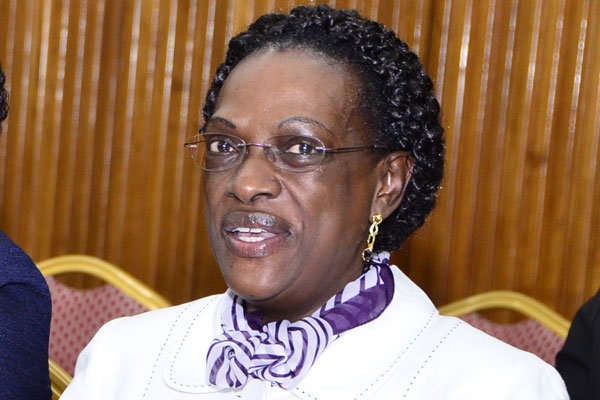Former Executive director in charge of supervision Bank of Uganda (BoU) Justine Bagyenda has for the second time skipped a parliamentary committee session investigating the closure of 7 banks.
Bagyenda has since Wednesday last week been appearing before the parliamentary committee on Statutory Authorities and State Enterprises (COSASE) to explain her role in the closure of International Credit Bank Ltd in 1998, Greenland Bank in 1999 and the Cooperative Bank in 1999.
However, the former BoU ED skipped the Friday session prompting committee chairman Abdu Katuntu to adjourn the meeting to today (Tuesday) citing Bagyenda’s absence. But the Bagyenda was again nowhere to be seen as COSASE members interfaced with BoU officials.
Last week, Bagyenda reportedly wrote to the BoU governor Emmanuel Tumusiime Mutebile informing him that she would not attend the Friday meeting as she had an engagement abroad.
There was no update on her whereabouts with COSASE chairman Abdu Katuntu speculating that she could be in neighboring Kenya.
Mr Katuntu said that the committee will proceed despite Bagyenda’s absence although he tasked parliament security to ascertain the whereabouts of Bagyenda, adding that the arrest warrant would come into force if Bagyenda doesn’t appear before the committee tomorrow (Wednesday).
Background
Last week, Ms Margaret Matovu and Ms Justine Bagyenda told the ongoing parliamentary inquiry into the closure of commercial banks that progressive reports on the liquidation of Cooperative Bank, International Credit Bank and Greenland Bank were submitted to the Governor. However, Mr Mutebile told the same committee that his office was never furnished with progressive reports on the three closed banks.
The unavailability of these progressive reports has now become a source of contention because they give details into how BoU downgraded assets of the three banks from Shs117b when they were closed in the 1990s to Shs19b when the central bank did a final Statement of Affairs on the defunct banks in June 2016.
An audit report before the committee indicates that because of lack of an assets movement schedule, auditors were unable to verify the change of value of assets from Shs117b by the time the three banks were closed to Shs19b as stated in BoU’s Statement of Affairs by June 30, 2017.
Mr Benedict Ssekabira, the BoU’s director for financial markets development coordination, who was the central bank’s agent in the liquidation process, insists he submitted progressive reports to the officers who variously occupied the office of executive director for supervision.




